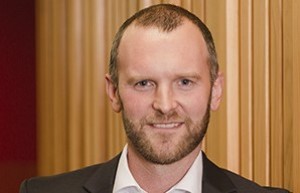Speaking to GRTV he says both parties' policies are disappointing tinkering around the edges.
“They don’t get that there is this huge pool of savings that will fund a whole lot of cool stuff around New Zealand.They’re not engaging with KiwiSaver managers and with KiwiSaver as a ticket to future prosperity.”
Stubbs says a plane with 12 billionaires each wanting to invest $10 billion in New Zealand would be met with a red carpet. “The top 12 KiwiSaver managers will invest something like $10 billion in New Zealand each, over the next 20 or 30 years. Do you think any politician could name two of them? I doubt it.”
Australia learned this a long time ago and has recycled its pension money into the economy, says Stubbs, but not enough KiwiSaver is invested in New Zealand because of the lack of opportunity.
“We have a tiny stock market and stock exchange, which is more interested in making a profit for its shareholders than in growing the capital markets. The bond market is OK, but it’s small.”
On average about 60-70 per cent of every KiwiSaver dollar goes off shore and it’s going up all the time.
“There’s just not anything to invest in here. The government’s not providing the opportunities, the stock market’s not providing the opportunities and the KiwiSaver managers, quite frankly, aren’t doing it.”
Stubbs thinks there is a low risk appetite among KiwiSaver managers for private equity investment in New Zealand. And there’s a conflict of interest given that the dominant KiwiSaver providers are banks who would rather lend money to fund projects than risk their KiwiSaver funds.
While 90% of Simplicity’s assets are in low cost index funds, it has a 10% asset allocation across build-to-rent properties, first home mortgages, and private equity.
“We discovered over the last seven years that the money our members are giving us is very long-duration and very sticky, so we can put it into these assets. I think there’s almost a fiduciary responsibility, in terms of maximising returns, to put it into asset classes where that money has a competitive advantage.”
Mortgages, rentals and family-owned businesses
Stubbs says Simplicity’s mortgage business is now growing “significantly”.
“Why would we put money in a bank who then just lends on to a mortgage borrower and makes a profit for themselves rather than lending to our members themselves?
“We get higher than bank term deposits and our members borrow for less than they would at the bank. So win-win. You just take that bank profit and split it 50-50.”
Another example is build-to-rent. “We can make a lot of money by developing these properties, renting them and managing them over a 50 to a 100 year period. But you need large amounts of very long term money to do that.”
On private equity Stubbs says Simplicity approaches small, often family owned companies. ”We offer to buy 20% – forever, without an exit strategy, without wanting to sit on the board or tell them how to run the business because we have no value to add there. But we do have a lot of long-term, patient equity capital.” Simplicity has made four PE investments so far, and although its “very early days” the return so far is 20% per annum.
Make it compulsory
Overall Stubbs thinks KiwiSaver could do with a refurb and should now be compulsory.
He would get rid of tax credits and redistribute the $900 million saved to all under-18 year olds, putting $700-$800 a year into each account. Such a move would be fiscally neutral and every child would have around $25,000 by the time they are 18 or 19.
“And that starts to eliminate some of the wealth inequity in New Zealand.”
He says we are getting to the point where KiwiSaver could start discriminating against those who don’t have it.
“In 30-40 years, when it is worth hundreds of billions of dollars, the government of the day will start formulating superannuation policy based on the assumption that a whole lot of voters and people have wealth. So you risk missing out if you don’t have KiwiSaver so in that sense it risks discriminating against the poor.”
To catch up with other countries on contribution rates, New Zealand could begin increasing rates by half a per cent a year.
“Australia has six times our population and yet they have $3 trillion, we have $100 billion. So they’ve got 30 times the savings with six times the population.
“But if you do this slowly, we can build it into wage negotiations, people get used to it.”





 Search
Search![[Watch] August property market update](https://i2.ytimg.com/vi/vIE_HKJSMAU/mqdefault.jpg)

